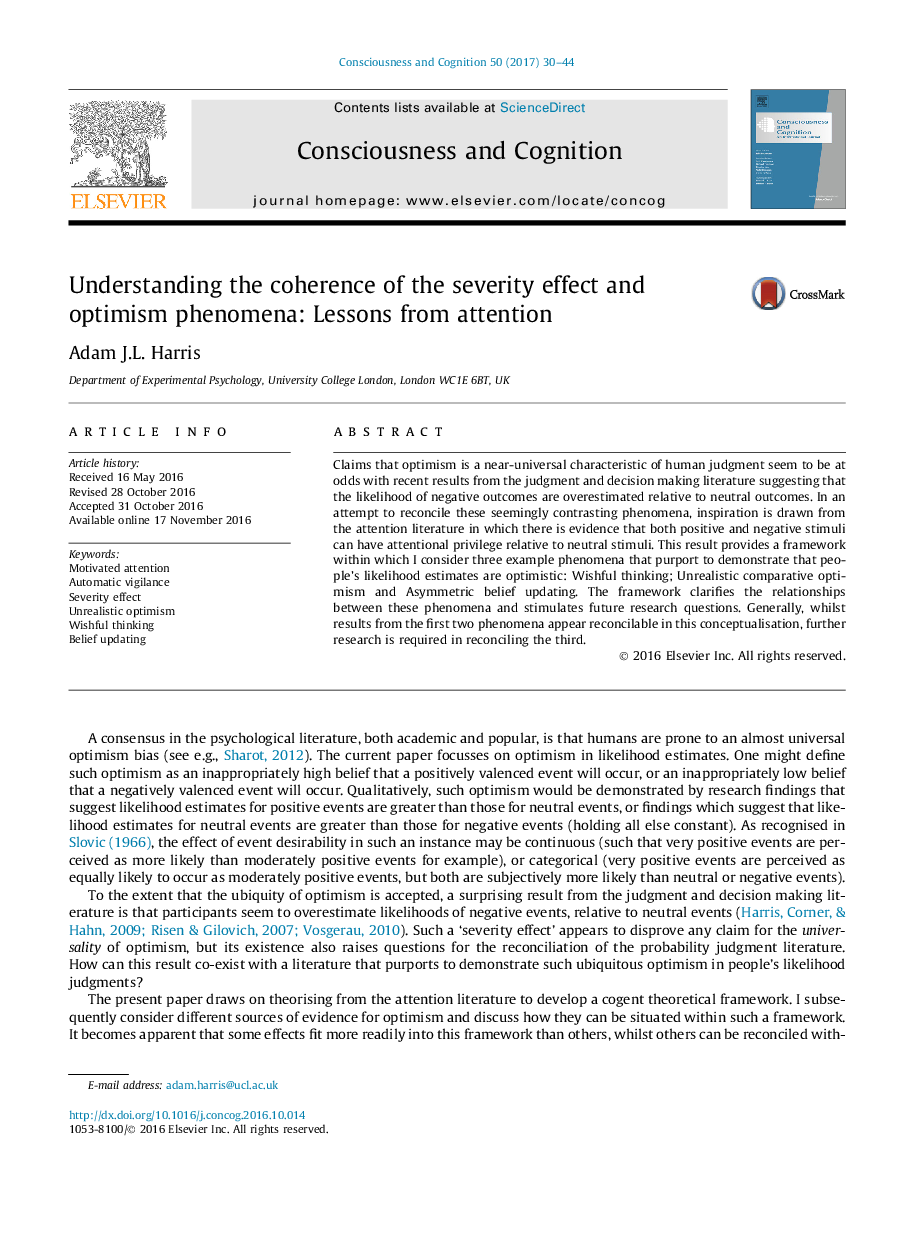| کد مقاله | کد نشریه | سال انتشار | مقاله انگلیسی | نسخه تمام متن |
|---|---|---|---|---|
| 5041710 | 1474161 | 2017 | 15 صفحه PDF | دانلود رایگان |
- Optimism frequently claimed as a universal characteristic of human thought.
- But the likelihood of negative outcomes is overestimated relative to neutral outcomes.
- The attention literature contains evidence for a similar seeming inconsistency.
- 3 optimism phenomena are located within a framework based on the attention literature.
- Some optimism phenomena are more readily located within this framework than others.
Claims that optimism is a near-universal characteristic of human judgment seem to be at odds with recent results from the judgment and decision making literature suggesting that the likelihood of negative outcomes are overestimated relative to neutral outcomes. In an attempt to reconcile these seemingly contrasting phenomena, inspiration is drawn from the attention literature in which there is evidence that both positive and negative stimuli can have attentional privilege relative to neutral stimuli. This result provides a framework within which I consider three example phenomena that purport to demonstrate that people's likelihood estimates are optimistic: Wishful thinking; Unrealistic comparative optimism and Asymmetric belief updating. The framework clarifies the relationships between these phenomena and stimulates future research questions. Generally, whilst results from the first two phenomena appear reconcilable in this conceptualisation, further research is required in reconciling the third.
Journal: Consciousness and Cognition - Volume 50, April 2017, Pages 30-44
